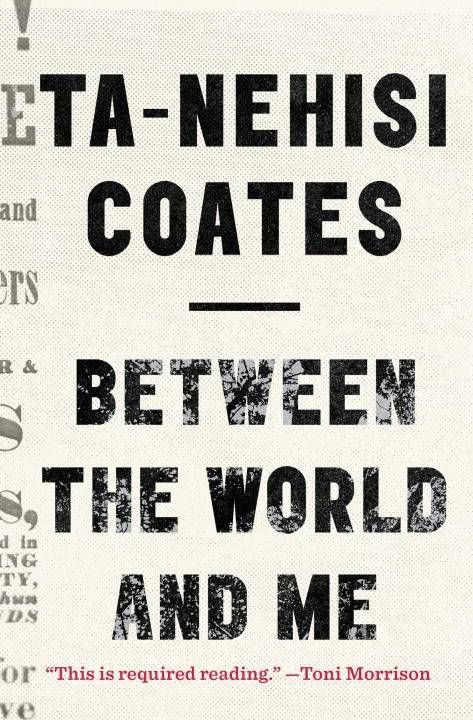
On Reviews of Books About the Black Experience in America
When James Baldwin’s The Fire Next Time was released in 1963 the New York Times called it “masterful.” The review continued, “No matter the skill of the writer, and Mr. Baldwin is skillful, one can never really know the corrosion of hate, the taste of fear or the misery of humiliation unless one has lived it… The listener can be transformed, as far as words will take him, into the skin or the teller.”
What that review from 1963 neglects to mention is that the listener can be transformed only if they are willing to undergo such a cultural shift.
 Fast-forward fifty-two years to reviews of Ta-Nehisi Coates’ new book, Between the World and Me. Written in the same vein as Baldwin’s The Fire Next Time, Coates’ book comes at a time when the focus on inequality is once again at the forefront of the national dialogue. But the Economist and the New York Times seem to have lost this perspective from 1963, the idea that one can never truly know the experiences of another, as well as their willingness to set aside previously held beliefs, if their reviews are anything to go by (the Economist review does not carry a byline, but one cannot read it and not remember a similar review from last Fall which was called out by Coates). Instead, they decide that Coates, a black man living in the United States, is an alarmist and irrational. He is unreliable and vacillates between love and hate for this country. Both call Coates’ work “Manichaean.” His assertion that there are two Americas must be false; after all, there are black people living in the suburbs.
Fast-forward fifty-two years to reviews of Ta-Nehisi Coates’ new book, Between the World and Me. Written in the same vein as Baldwin’s The Fire Next Time, Coates’ book comes at a time when the focus on inequality is once again at the forefront of the national dialogue. But the Economist and the New York Times seem to have lost this perspective from 1963, the idea that one can never truly know the experiences of another, as well as their willingness to set aside previously held beliefs, if their reviews are anything to go by (the Economist review does not carry a byline, but one cannot read it and not remember a similar review from last Fall which was called out by Coates). Instead, they decide that Coates, a black man living in the United States, is an alarmist and irrational. He is unreliable and vacillates between love and hate for this country. Both call Coates’ work “Manichaean.” His assertion that there are two Americas must be false; after all, there are black people living in the suburbs.
The reviewers’ refusal to see the basis of Coates’ argument, that there are in fact two Americas and one is based entirely upon and sustained by black suffering and that it is possible to love a country and hate how it treats you at the same time, is critical to the tone of their reviews. If they don’t see the problem it doesn’t exist. Their perspective clouds their ability to fully synthesize Coates’ work the same way a black American would, a fact neither reviewer chooses to acknowledge.
Both reviewers spend time within their reviews consoling the reader, who is presumably as white as the publications’ mastheads. It’s a strange tone that makes Coates, who regularly writes about race issues and black oppression in America, the bad guy. The reviews assure the reader that the US is not really as bad as Coates states. The New York Times declares “After all, America has twice elected a black president” because things cannot be that bad if there is a black man sitting in the White House. The Economist goes a step further and references Obama directly, stating “When talking about race, Barack Obama often says that anyone who doubts that there has been progress in America should put the question to a black man who lived in the south under Jim Crow.” Sure, the reviewers acknowledge, there are still some problems. But the problems are far from as bad as it used to be.
This argument, that things aren’t as bad as they used to be, is one of privilege. It is the argument of a person who doesn’t have to worry about being shot by the police for a minor infraction. “It’s better than it was, it’s not that bad” is an easy thing to say when you are removed from the violence by either race or class. It is a very difficult thing to gasp out when you are pinned down in a chokehold on a New York City sidewalk.
Both the New York Times review and the review from the Economist bemoan Coates’ bleak outlook and his apparent lack of hope. But Coates’ knows hope is for people who see the possibility of change. Hope is the confluence of choice and opportunity, and it is something many in the black community have lost in the wake of electing a black president and not seeing anything change. It is difficult to preach hope to a people who witness unarmed loved ones killed by police officers, officers who subsequently serve no jail time. Hope is hard to come by when nine people are gunned down in the middle of their place of worship, an act of terrorism labeled an unfortunate incident. So Coates doesn’t talk of hope, he instead talks of harsh reality and the historical context that white America chooses to ignore. After all, systemic racism isn’t a black creation, it is a white one.
And this is the crux of the reviews, the issue that both reviewers seem unable to get over. Coates grants no quarter to apathetic whites in America. He finds them just as culpable as those actively working against equality. It’s a tone and argument that isn’t likely to be popular with the good white people that read the New York Times and the Economist.
These reviews are not just about Coates’ book. They speak to the larger issue of quality, of what dictates excellence and who it is in our society that gets to declare something good or bad. It speaks to issues of diversity and representation and to the bleak statistics surrounding traditionally published books featuring protagonists of color. When books speak to the white experience they are applauded and held up as universal. When books speak to the black experience in America they are derided by people who have no first hand knowledge of that experience. So what is considered to be quality continues to be an inaccurate reflection of reality in the United States. Instead, the message of whiteness, and by default the experiences of white Americans, being superior continues to grow.
Sounds like something Coates could write about in his next book.





